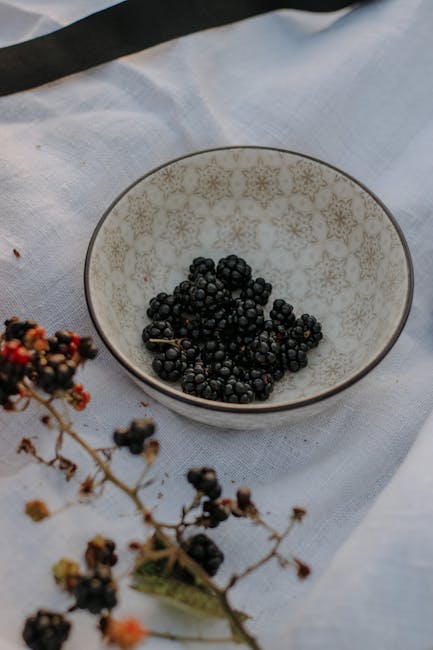Cutting back on sugar? You’re not alone! Many people are looking for ways to reduce their sugar intake, whether it’s for weight management, better health, or simply to avoid that afternoon sugar crash. But finding truly sugar-free foods can feel like navigating a tricky maze. As a nutrition-focused health blogger, I’m here to help you discover delicious and satisfying sugar-free options that won’t leave you feeling deprived.
It’s important to understand what we mean by “sugar-free.” Legally, a product labeled as sugar-free must contain less than 0.5 grams of sugar per serving. However, this doesn’t necessarily mean it’s carbohydrate-free or calorie-free. Also, some sugar-free products contain artificial sweeteners or sugar alcohols, which can affect people differently. We’ll explore some of these considerations as we go along.
Naturally Sugar-Free Foods: Your Best Bet
The best place to start your sugar-free journey is with foods that are naturally low in or completely free of sugar. These are typically whole, unprocessed foods.
Vegetables
Most vegetables are naturally very low in sugar. Leafy greens like spinach, kale, and lettuce are excellent choices. Broccoli, cauliflower, asparagus, cucumbers, and zucchini are also fantastic options. Even slightly sweeter vegetables like bell peppers and tomatoes contain relatively small amounts of sugar compared to other foods. Remember to watch out for added sugars in sauces or dressings!
Protein Sources
Meat, poultry, fish, and eggs are naturally sugar-free. These are great sources of protein and essential nutrients. Just be mindful of how you prepare them. Avoid sugary marinades or glazes. Instead, opt for herbs, spices, lemon juice, or vinegar for flavoring.
Healthy Fats
Avocados are your friend! They’re packed with healthy fats and are naturally sugar-free. Olive oil, coconut oil, and nuts and seeds (like almonds, walnuts, chia seeds, and flax seeds) are also great options for adding healthy fats to your diet without any added sugar. Again, be careful with nut butters, as some brands add sugar.
Unsweetened Dairy and Dairy Alternatives
Plain, unsweetened Greek yogurt is a great source of protein and probiotics, and it contains very little sugar. Be cautious with flavored yogurts, which can be loaded with sugar. You can add your own berries or a sprinkle of nuts for flavor. Unsweetened almond milk, soy milk, and other plant-based milk alternatives are also good choices, but always check the label for added sugars.
Navigating “Sugar-Free” Packaged Foods
This is where things can get a little trickier. Just because something is labeled “sugar-free” doesn’t automatically make it a healthy choice. It’s important to read the ingredient list carefully and understand what alternatives are being used to replace sugar.
Artificial Sweeteners
Many sugar-free products use artificial sweeteners like aspartame, saccharin, sucralose, and stevia. These sweeteners provide sweetness without the calories of sugar. While generally considered safe for most people in moderation, some individuals may experience side effects like headaches or digestive issues. It’s best to experiment and see how your body reacts to different artificial sweeteners.
Sugar Alcohols
Sugar alcohols like erythritol, xylitol, and sorbitol are another common sugar substitute. They contain fewer calories than sugar and don’t raise blood sugar levels as much. However, sugar alcohols can sometimes cause digestive upset, especially if consumed in large quantities. Erythritol is generally considered to be the most well-tolerated sugar alcohol.
Hidden Sugars
Be aware of hidden sugars that might be lurking in the ingredient list under different names. These include high fructose corn syrup, corn syrup, dextrose, sucrose, and maltose. Reading labels carefully is crucial to avoid these sneaky sugars.
Smart Swaps for a Sugar-Free Lifestyle
Here are some easy swaps you can make to reduce your sugar intake:
- Instead of sugary sodas, drink water, unsweetened tea, or sparkling water with a squeeze of lemon or lime.
- Instead of sugary cereals, opt for oatmeal with berries and nuts.
- Instead of store-bought granola bars, make your own using nuts, seeds, and unsweetened dried fruit.
- Instead of sugary desserts, try a small portion of dark chocolate (70% cacao or higher) or a sugar-free fruit crumble.
Safety Tips and Considerations
If you have diabetes, it’s especially important to work with your doctor or a registered dietitian to create a sugar-free meal plan that’s right for you. They can help you monitor your blood sugar levels and adjust your medication as needed.
If you’re pregnant or breastfeeding, talk to your doctor before consuming large amounts of artificial sweeteners or sugar alcohols.
Be mindful of portion sizes, even with sugar-free foods. It’s still possible to overeat calories, even if you’re not consuming sugar.
Frequently Asked Questions (FAQ)
Are sugar-free products healthy?
Not necessarily. While they eliminate sugar, they might contain unhealthy fats, artificial ingredients, or excessive calories. Always read the label carefully and choose options made with whole, unprocessed ingredients whenever possible.
Can sugar-free foods help with weight loss?
They can be a helpful tool, but they’re not a magic bullet. Reducing your overall sugar intake can certainly contribute to weight loss, but it’s important to focus on a balanced diet and regular exercise.
Are artificial sweeteners safe?
Most artificial sweeteners are considered safe in moderation. However, some people may experience side effects. It’s best to experiment and see how your body reacts. If you have any concerns, talk to your doctor.
Do sugar alcohols cause digestive problems?
Yes, they can, especially if consumed in large quantities. Erythritol is generally the most well-tolerated sugar alcohol. Start with small amounts and see how you feel.
Living a sugar-free or sugar-reduced lifestyle is absolutely achievable with the right knowledge and strategies. Focus on incorporating naturally sugar-free whole foods into your diet, reading labels carefully, and making smart swaps for sugary treats. By taking a mindful and balanced approach, you can enjoy delicious and satisfying meals without all the added sugar!

